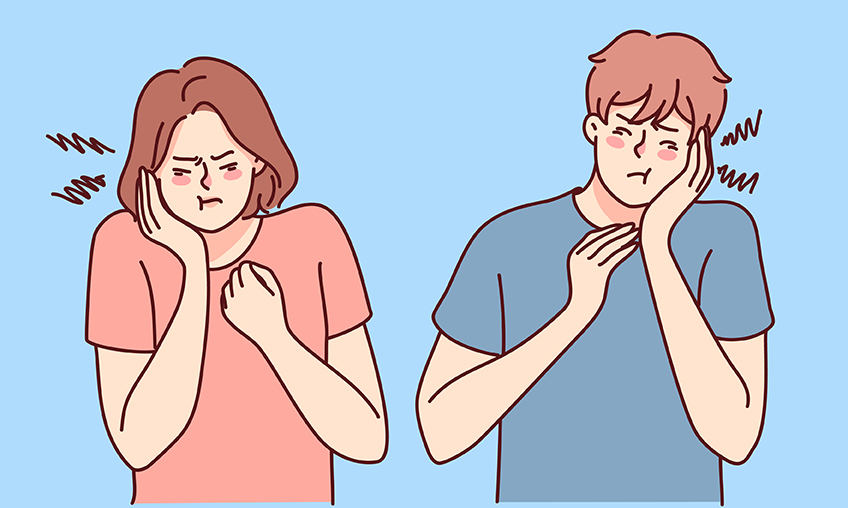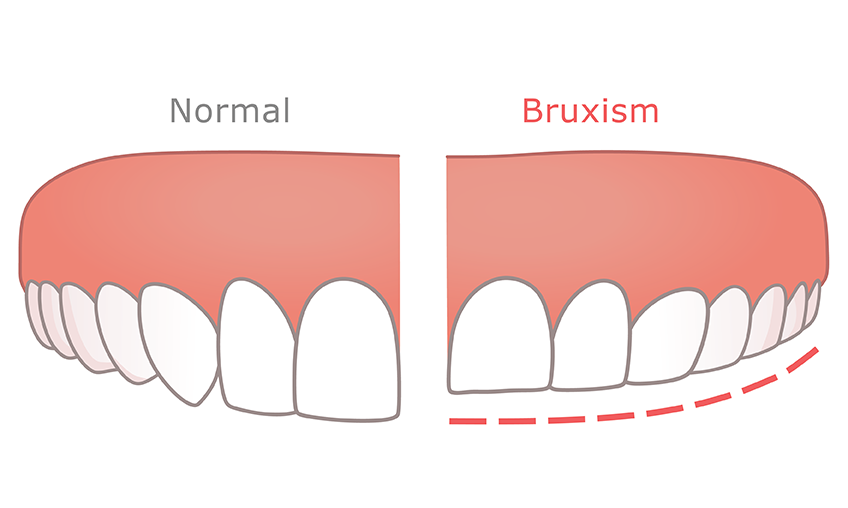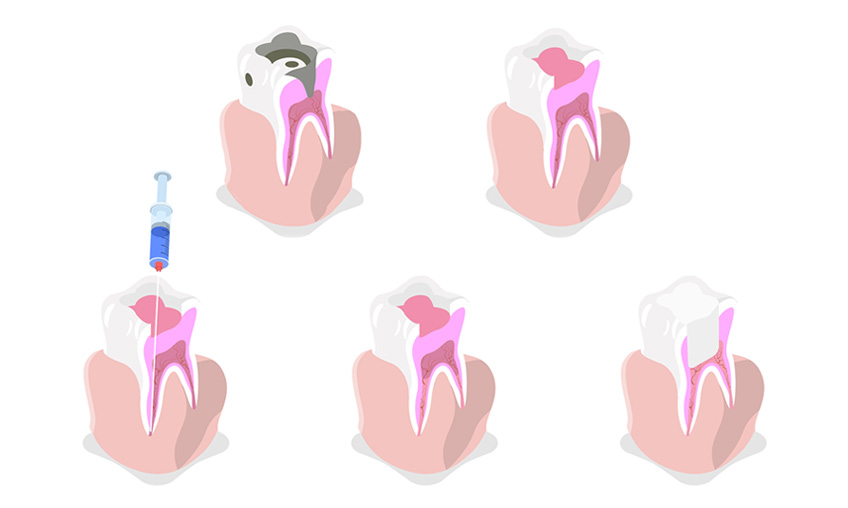
By James Grant, DDS
A toothache is any pain that comes from a tooth. Sometimes the pain is quick and sharp. Other times, the pain may be dull or throbbing, says the Journal of the American Dental Association (ADA).
Toothache Causes
The most common cause of toothaches is tooth decay (a cavity), according to the Mayo Clinic. Cavities cause short, sharp pain, the ADA notes. So does a chipped or cracked tooth, or an exposed tooth root. On the other hand, steady but less intense pain is usually a sign of infection. Swelling in the face, even without pain, is also a sign of infection.
Whether you feel sudden tooth pain or a constant ache, please make an appointment as soon as possible to see your dentist.
When to See a Dentist for a Toothache
The National Library of Medicine advises getting professional care if you have:
- severe tooth pain
- a toothache that lasts longer than a day or two
- fever, earache or pain when opening your mouth wide
Treatment also depends on the reason for your tooth pain. It may include getting a cavity filled. When decay and bacteria invade your oral tissues, nerves and blood vessels, the damage is permanent. Then, the only treatment choices are a root canal therapy or removing a tooth entirely. Sometimes before these procedures, patients need placement of a drain to reduce or remove pus to let anesthetic work.
If you have a toothache because of teeth grinding (bruxism), your dentist may recommend wearing a special appliance to protect your teeth.
How to Ease Toothache Pain
Until your dental appointment, help get rid of tooth pain ASAP with this advice from the Mayo Clinic:
- Rinse your mouth with warm water.
- Gently floss to remove any food bits or plaque between teeth.
- Take an over-the-counter (nonprescription) pain reliever according to directions on the bottle. Aspirin, ibuprofen and naproxen (called NSAIDs, or nonsteroidal anti-inflammatory drugs) or acetaminophen can help toothache pain.
Note: Please do not place aspirin or another painkiller directly on your gums. That can burn your gum tissue and cause more pain. - Apply a cold compress to the outside of your cheek if an injury or grinding caused the toothache.
How Long a Tooth Hurts Before the Nerve Dies
Nerve death from a toothache can take several months or more, depending on your circumstances. But one thing is certain: Going months without treatment is awful.
It takes weeks or months of low-grade toothache pain to become sharp and severe. Also, it takes a long time for a toothache to become acute when pus from an infection can drain away.
Sometimes, patients try to ride out a toothache. They take over-the-counter (OTC) pain relievers for weeks and even longer to manage pain. Unfortunately, that doesn’t fix the problem and causes more trouble.
For example, you can get stomach pain or even ulcers when you take NSAIDs longer than 10 days, says the National Library of Medicine. And too much acetaminophen can hurt your liver permanently.
There are also many other harms from taking OTC pain medicine for 10-plus days. And in the end, it doesn’t help what’s causing your toothache. Then the toothache gets worse anyway!
A major danger from an untreated toothache is when an abscess forms at the bottom of the root of your tooth. Your body works to contain this infection. But without treatment, the abscess can burst. Then pus drains into surrounding tissues.
When pus and its bacteria enter your bloodstream, it is a “short trip” to reach your brain. No one wants bacteria in their brain. Even when patients survive, the infection can cause damage that lasts a lifetime.
When the Problem Is Urgent
Visiting the dentist is the right thing to do for most toothaches. But if you have trouble breathing or swallowing, please seek emergency care.
The Cleveland Clinic notes these other times when you may need emergency care:
- Swelling below your eye or a knot on your jaw
- Tooth pain that’s unbearable even after you have taken medicine
- Bleeding that won’t stop when you apply pressure
- A fever over 101 degrees Fahrenheit
Of course, it’s best to avoid getting a toothache. To do that, keep up with good oral hygiene habits. Brush twice a day, floss once a day, and see your dentist twice a year.
At DentaQuest, part of Sun Life U.S., we work to improve the oral health of all. Visit our Resource Center for more helpful information for you and your family.
Taking over-the-counter pain medicine for more than 10 days doesn’t help what’s causing your toothache. Then the toothache gets worse anyway!
DentaQuest’s senior clinical dental advisor, Dr. Grant also serves on the Dental Hygiene Board of Colorado Mountain College and is a lifetime member of the American Dental Association, American Academy of Oral Systemic Health, and the Academy of Osseointegration. A private practitioner for 35 years, Dr. Grant is also a 12-time U.S. patent holder with FDA clearance. He created a dental implant that biomimics the root of a molar tooth and continues developing that invention. Dr. Grant earned his DDS at the Ohio State College of Dentistry.
RELATED ARTICLES

PREVENTISTRY PULSE
The newsletter designed for anyone who wants to improve oral health for themselves, their families, customers or communities.



























